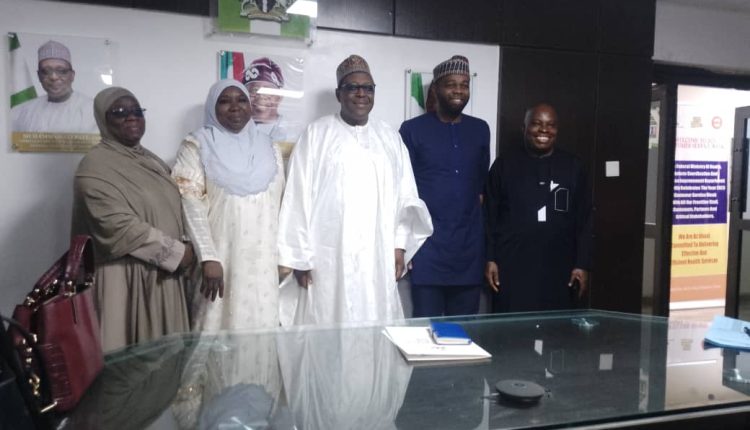Nigeria government Launches NHIA Fistula Free Program to Improve Maternal Health
By Edward Samuel, Abuja
In a significant stride towards improving maternal health, the Nigeria government has launched the National Health Insurance Authority (NHIA) Fistula Free Program to Improve Maternal Health in Nigeria.
READ ALSO:FG, USAID conducts 1,566 fistula repairs in 5 states
In his speech during the flag-off and inauguration of the programme committee in Abuja the nations capital, the Coordinating Minister of Health and Social Welfare, Prof. Ali Pate underscored the critical issue of affordability and access to care for women suffering from childbirth-related complications, particularly obstetric fistula.
Prof. Pate commended the Director General of the NHIA for fostering a collaborative environment to address this pressing issue.

He emphasized the symbolic importance of this initiative in the broader agenda to build an inclusive health system that leaves no one behind.
“Our goal is to save lives, reduce physical and financial pain, and provide quality healthcare for all Nigerians,” Prof. Pate stated.
He highlighted the burden of maternal morbidity and mortality across the country, pointing out that many young women, especially those in rural and underserved areas, suffer from obstetric fistula due to complications during childbirth.
“These women often face stigmatization and financial barriers to accessing the necessary surgical repairs”.
Prof. Pate stressed the administration’s commitment to rebuilding the health system, making essential services affordable, and supporting the poorest and most vulnerable populations.
“I am delighted to launch the Fistula Free Program, developed by the NHIA and its steering committee, this is a crucial step towards addressing these challenges”. He added.
In his presentation, the Director General/CEO of the National Health Insurance Authority (NHIA), Dr. Kelechi Ohiri, gave a comprehensive strategy aimed at addressing the needs of women suffering from obstetric fistula, emphasizing the importance of financial access and systemic support for vulnerable populations.
Dr. Ohiri highlighted the alignment of this initiative with the Nigerian health sector’s strategic blueprints, particularly focusing on the intersection of poverty and vulnerability among women with obstetric fistula.

He described “these women as typically young, malnourished, and from impoverished households, making them prime candidates for targeted intervention”. He said.
“The chronic nature of their condition is not due to its medical complexity but because they cannot afford treatment”. Dr. Ohiri noted, stressing the urgency of providing affordable care.
“The NHIA Fistula Free Program aims to enhance financial access to definitive care for these women”.
Dr. Ohiri outlined a phased approach, starting with the National Obstetric Fistula Centers in Katsina, Bauchi, Ebonyi, and Edo, and later expanding to other hospitals capable of providing fistula care.
“The program covers various aspects of treatment, from conservative management and surgical intervention to transportation, mental health counseling, and family planning.
Moreover, beneficiaries will be enrolled in a social health insurance program to ensure sustainable outcomes”. He added.
Globally, around 2 million people live with unrepaired obstetric fistula, with Nigeria accounting for about 7.5% of this number.
Dr. Ohiri emphasized the dire need for intervention, projecting that without action, it could take up to 83 years to clear the backlog of cases.
He praised the commitment of medical directors at the National Obstetric Fistula Centers and highlighted the collaborative efforts with state social health insurance agencies and private health insurance partners to manage and monitor the program effectively.
Dr. Ohiri stressed the importance of data management and monitoring and evaluation to ensure high-quality care for the program’s beneficiaries.
He reaffirmed NHIA’s commitment to providing equitable and efficient healthcare services, ensuring that vulnerable women receive the care they deserve without compromise.
The NHIA Fistula Free Program is poised to make a substantial impact on maternal health in Nigeria, offering hope and support to countless women across the nation.

